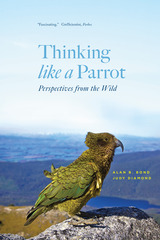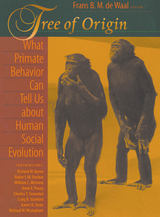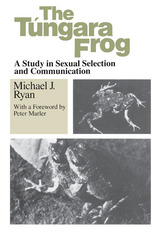4 start with T start with T

All bodily activity is the result of the interplay of vastly complex physiological processes, and all of these processes depend on temperature. For insects, the struggle to keep body temperature within a suitable range for activity and competition is often a matter of life and death.
A few studies of temperature regulation in butterflies can be found dating back to the late 1800s, but only recently have scientists begun to study the phenomenon in other insects. In The Thermal Warriors Bernd Heinrich explains how, when, and in general what insects regulate their body temperature and what it means to them. As he shows us, the ingenuity of the survival strategies insects have evolved in the irreducible crucible of temperature is astonishing: from shivering and basking, the construction of turrets (certain tiger beetles), and cooling with liquid feces to stilting (some desert ants and beetles), "panting" in grasshoppers and "sweating cicada," and counter- and alternating-currents of blood flow for heat retention and heat loss.
In The Thermal Warriors Heinrich distills his great reference work, The Hot-Blooded Insects, to its essence: the most significant and fascinating stories that illustrate general principles, all conveyed in the always engaging prose we have come to expect from this author.

People form enduring emotional bonds with other animal species, such as dogs, cats, and horses. For the most part, these are domesticated animals, with one notable exception: many people form close and supportive relationships with parrots, even though these amusing and curious birds remain thoroughly wild creatures. What enables this unique group of animals to form social bonds with people, and what does this mean for their survival?
In Thinking like a Parrot, Alan B. Bond and Judy Diamond look beyond much of the standard work on captive parrots to the mischievous, inquisitive, and astonishingly vocal parrots of the wild. Focusing on the psychology and ecology of wild parrots, Bond and Diamond document their distinctive social behavior, sophisticated cognition, and extraordinary vocal abilities. Also included are short vignettes—field notes on the natural history and behavior of both rare and widely distributed species, from the neotropical crimson-fronted parakeet to New Zealand’s flightless, ground-dwelling kākāpō. This composite approach makes clear that the behavior of captive parrots is grounded in the birds’ wild ecology and evolution, revealing that parrots’ ability to bond with people is an evolutionary accident, a by-product of the intense sociality and flexible behavior that characterize their lives.
Despite their adaptability and intelligence, however, nearly all large parrot species are rare, threatened, or endangered. To successfully manage and restore these wild populations, Bond and Diamond argue, we must develop a fuller understanding of their biology and the complex set of ecological and behavioral traits that has led to their vulnerability. Spanning the global distribution of parrot species, Thinking like a Parrot is rich with surprising insights into parrot intelligence, flexibility, and—even in the face of threats—resilience.

How did we become the linguistic, cultured, and hugely successful apes that we are? Our closest relatives--the other mentally complex and socially skilled primates--offer tantalizing clues. In Tree of Origin nine of the world's top primate experts read these clues and compose the most extensive picture to date of what the behavior of monkeys and apes can tell us about our own evolution as a species.
It has been nearly fifteen years since a single volume addressed the issue of human evolution from a primate perspective, and in that time we have witnessed explosive growth in research on the subject. Tree of Origin gives us the latest news about bonobos, the "make love not war" apes who behave so dramatically unlike chimpanzees. We learn about the tool traditions and social customs that set each ape community apart. We see how DNA analysis is revolutionizing our understanding of paternity, intergroup migration, and reproductive success. And we confront intriguing discoveries about primate hunting behavior, politics, cognition, diet, and the evolution of language and intelligence that challenge claims of human uniqueness in new and subtle ways.
Tree of Origin provides the clearest glimpse yet of the apelike ancestor who left the forest and began the long journey toward modern humanity.

In TheTúngara Frog, the most detailed and informative single study available of frogs and their reproductive behavior, Michael J. Ryan demonstrates the interplay of sexual and natural selection. Using techniques from ethology, behavioral ecology, sensory physiology, physiological ecology, and theoretical population genetics in his research, Ryan shows that large males with low-frequency calls mate most successfully. He examines in detail a number of explanations for the females' preferences, and he considers possible evolutionary forces leading to the males' success.
Though certain vocalizations allow males to obtain mates and thus should be favored by sexual selection, this study highlights two important costs of such sexual displays: the frogs expand considerable energy in their mating calls, and they advertise their whereabouts to predators. Ryan considers in detail how predators, especially the frige-lipped bat (Trachops cirrhosus), affect the evolution of the túngara frog's calls.
READERS
Browse our collection.
PUBLISHERS
See BiblioVault's publisher services.
STUDENT SERVICES
Files for college accessibility offices.
UChicago Accessibility Resources
home | accessibility | search | about | contact us
BiblioVault ® 2001 - 2025
The University of Chicago Press









